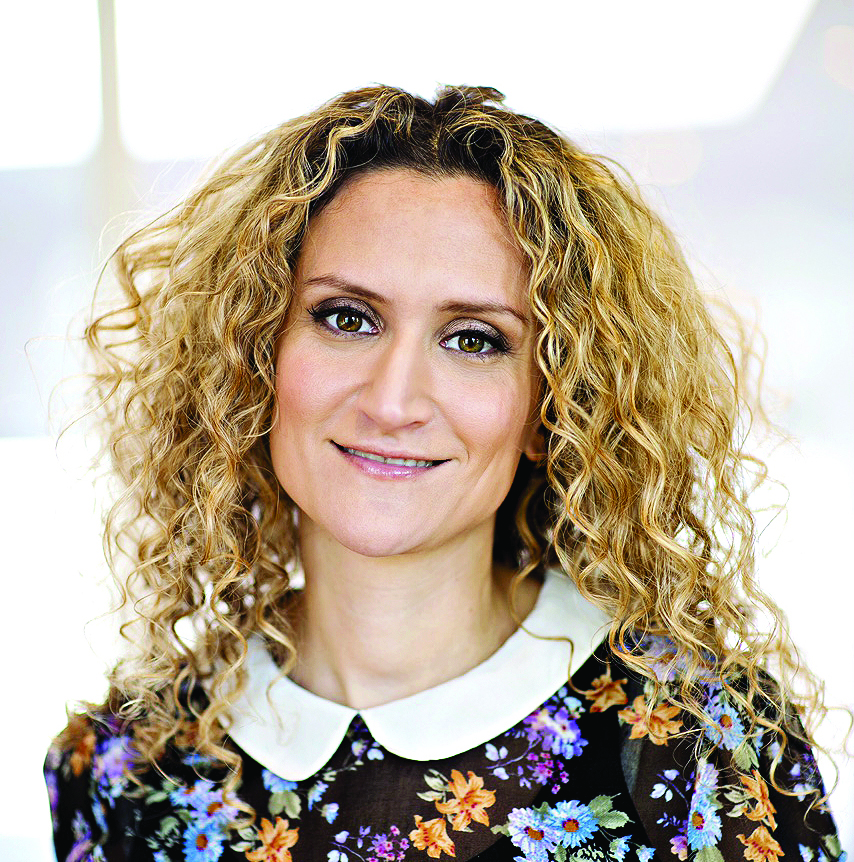Ask Dr Ellie Cannon!
Our resident GP looks at pressing medical issues including, antidepressants, chickenpox vaccinations and PSA tests
Q Should I take antidepressants? I know I have depression and my GP has suggested it, but don’t they have side-effects?
Starting any medication is a big step and you should always consider the bad as well as the good effects: no medicines, even a simple paracetamol, come without side-effects.
Anti-depressants are very effective at treating depression. The first few weeks on them can be hard, as often your mood may dip before it gets better. After that, side-effects may include appetite changes, tiredness or nausea as well as changes in weight. These effects very much depend on which one you try. You have to look at mental-health issues the same way you would a physical-health issue: it needs appropriate treatment and the benefits of that have to be weighed up with known side-effects.
Depression is a debilitating illness affecting quality of life, work, relationships and families, so if medicine can help you, it’s worth considering. Sadly, mental health is stigmatised within families, the community and the wider population. This makes accepting treatment and asking for help very difficult for sufferers.
There is also plenty of help other than medications. Therapy – usually cognitive behavioral therapy – is available on the NHS. Or consider accessing it privately if you can, to avoid a long wait. Charities and support groups may offer you help in terms of coping with your illness, finding treatment and talking to family.
Contact JAMI on 020 8458 2223.
Q Should I vaccinate my child against chickenpox? I know it isn’t standard,but many people seem to be doing it.

Chickenpox is not a standard vaccination in this country. There are a number of reasons for this, but it boils down to cost-effectiveness and severity of illness. For most children, chickenpox is a mild illness – spots, itchiness, a fever and some tiredness. I say most because there have been cases of chickenpox that are very severe where children can get seriously ill with, for example, pneumonia or sepsis (blood poisoning).
In recent months, mother Sarah Allen highlighted her son’s case in the media, calling for a vaccination because he had chickenpox so severely and ended up in intensive care. But as the medical profession pointed out at the time, the reason the case was so newsworthy was that it was so unusual. Most cases are just not that bad.
So we are not dealing with a serious illness. Compare that to some very serious illnesses we do vaccinate against, like meningitis B, which has a death rate of 10 per cent, and you can see the vaccination is not really justified in terms of spending the money.
But whether you opt into paying for the vaccine yourself is another matter. My one concern is that with the vaccination, the immunity can wear off as children go into adulthood: and adult chickenpox or, even worse, chickenpox when pregnant, can be very severe, so
an adult booster would be a good idea.
Q Should I have a PSA test? I am a 50-year-old with no symptoms that I know of, but I know this test is common in other countries.
PSA is a blood test to detect something called prostate-specific-antigen – a chemical marker that rises in prostate cancer. It can be used theoretically to detect prostate cancer earlier than symptoms would allow. But the issue is that prostate cancer is not the only condition in which PSA can rise: it rises in a lot of benign conditions.
So if you are widely screening men with no symptoms, not only will you detect cancer, you will also detect a lot of non-cancer as cancer – something we call false positives. False positives in prostate screening mean a man can be subjected to biopsies, treatment and the nasty side effects of those, which might be totally unnecessary and can go on to affect quality of life. So PSA is a poor screening tool.
It is useful in men with a strong family history or their own personal history of prostate disease, but not as a population screening test. It is far better to be aware of the risk factors and
potential symptoms of prostate cancer.
You are more likely to get prostate cancer with a family history of the disease, if you are over 65, or if your family carries the BRCA breast cancer genes. Symptoms include changes to the flow of urine, blood in the urine or semen, needing to pass urine frequently and needing to go to the toilet overnight.

Thank you for helping to make Jewish News the leading source of news and opinion for the UK Jewish community. Today we're asking for your invaluable help to continue putting our community first in everything we do.
For as little as £5 a month you can help sustain the vital work we do in celebrating and standing up for Jewish life in Britain.
Jewish News holds our community together and keeps us connected. Like a synagogue, it’s where people turn to feel part of something bigger. It also proudly shows the rest of Britain the vibrancy and rich culture of modern Jewish life.
You can make a quick and easy one-off or monthly contribution of £5, £10, £20 or any other sum you’re comfortable with.
100% of your donation will help us continue celebrating our community, in all its dynamic diversity...
Engaging
Being a community platform means so much more than producing a newspaper and website. One of our proudest roles is media partnering with our invaluable charities to amplify the outstanding work they do to help us all.
Celebrating
There’s no shortage of oys in the world but Jewish News takes every opportunity to celebrate the joys too, through projects like Night of Heroes, 40 Under 40 and other compelling countdowns that make the community kvell with pride.
Pioneering
In the first collaboration between media outlets from different faiths, Jewish News worked with British Muslim TV and Church Times to produce a list of young activists leading the way on interfaith understanding.
Campaigning
Royal Mail issued a stamp honouring Holocaust hero Sir Nicholas Winton after a Jewish News campaign attracted more than 100,000 backers. Jewish Newsalso produces special editions of the paper highlighting pressing issues including mental health and Holocaust remembrance.
Easy access
In an age when news is readily accessible, Jewish News provides high-quality content free online and offline, removing any financial barriers to connecting people.
Voice of our community to wider society
The Jewish News team regularly appears on TV, radio and on the pages of the national press to comment on stories about the Jewish community. Easy access to the paper on the streets of London also means Jewish News provides an invaluable window into the community for the country at large.
We hope you agree all this is worth preserving.






















